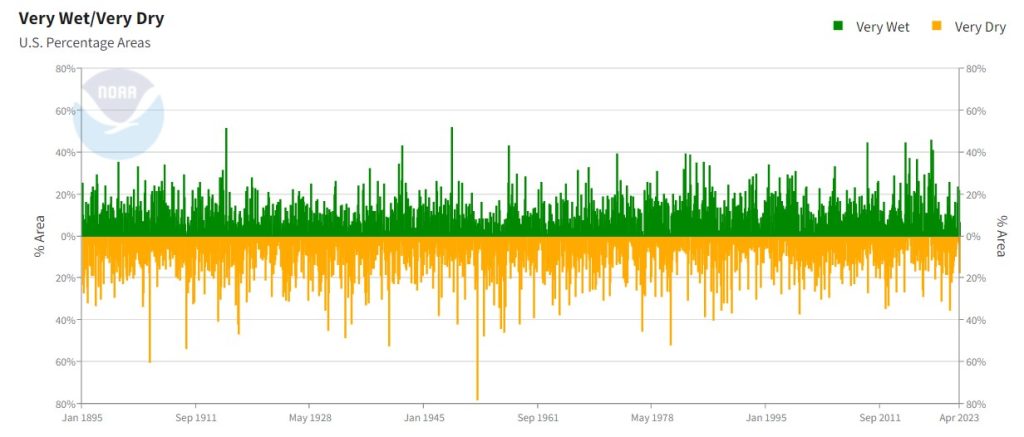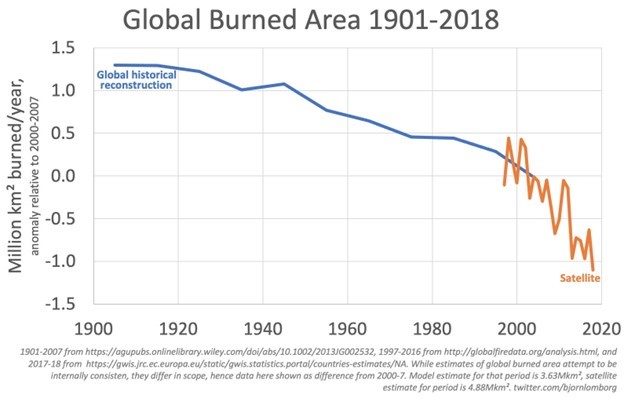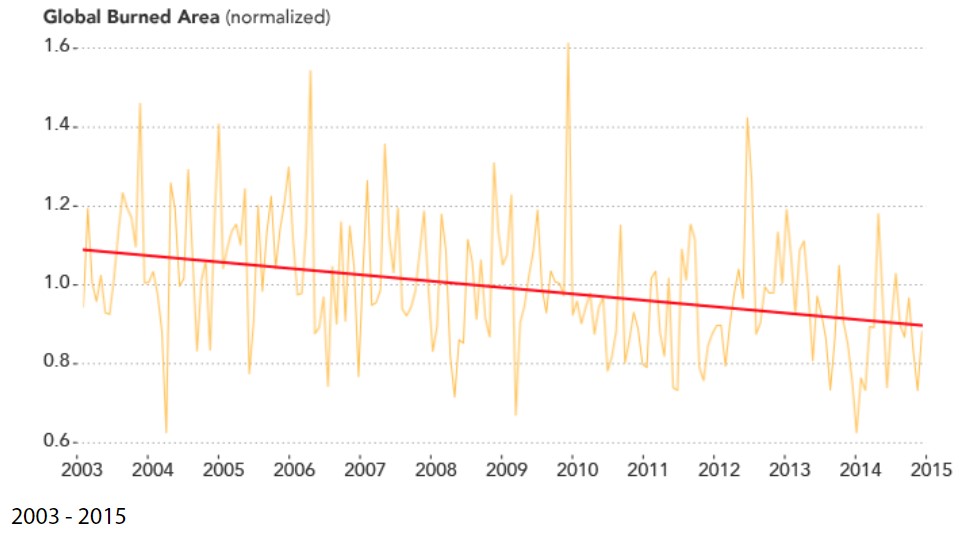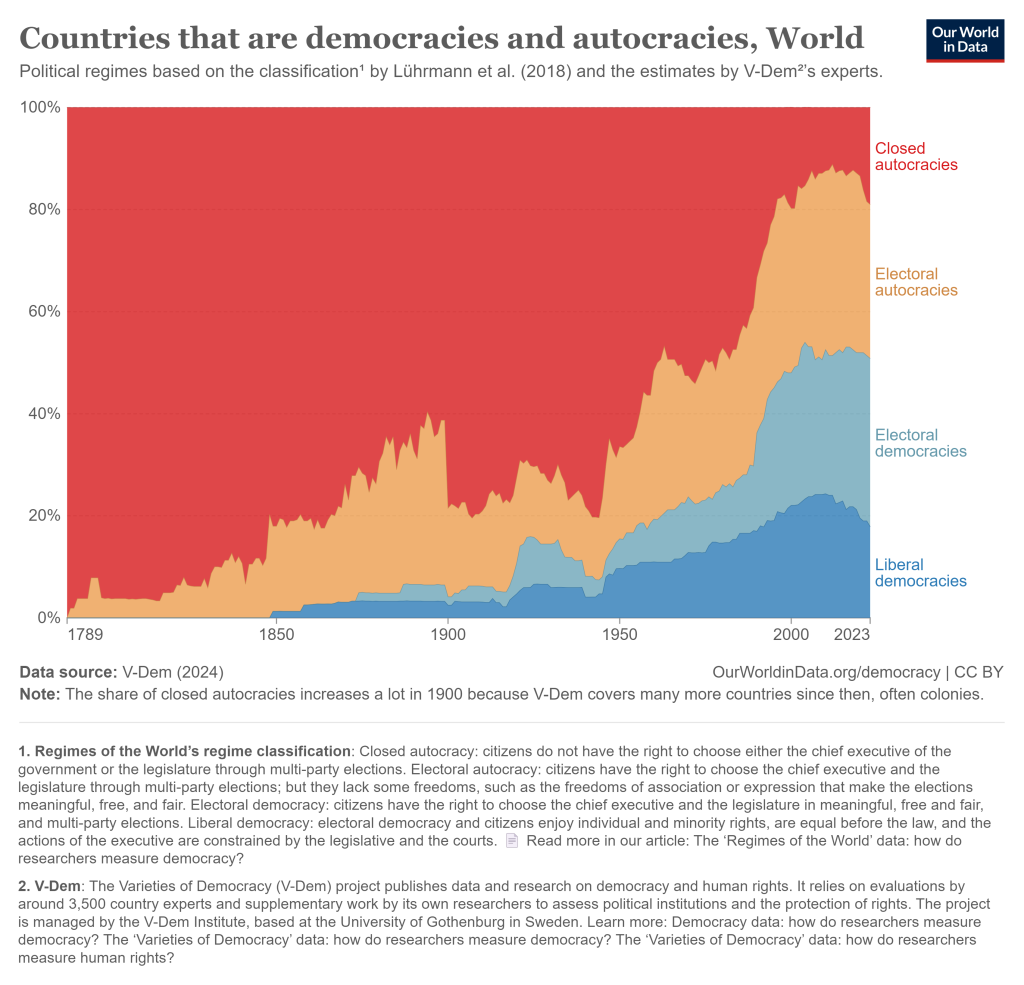Wrong, Grist, Climate Change Isn’t Causing a Rise in Authoritarianism
A recent Grist article, titled “Authoritarianism is on the rise. Is climate change to blame?” claims that climate change is creating conditions, like worse storms, droughts, and wildfires, that contribute to the rise of authoritarian governments around the world governments. This is silly from both scientific and historical perspectives. The conditions listed are not getting worse, so they cannot be contributing to any rise in authoritarianism. Likewise, authoritarian governments existed, and indeed were more common, long before any modern warming began. There are fewer unelected, dictatorial rulers now than at any time in history.
Grist cites a few small studies to back up the idea that “strongmen” like Philippine president Rodrigo Duterte, Indian prime minister Narendra Modi, former president Jair Bolsonaro of Brazil, and most absurdly, former U.S. president Donald Trump, are becoming more common because global warming pushes people to seek security in authoritarian candidates. Grist claims that “they’ve advanced at a time when climate change has become increasingly visible and harmful as worsening storms, droughts, and wildfires affect more and more people.”
At the outset, it should be noted, each of the leaders Grist calls “strongmen,” implying that they are authoritarians, were democratically elected. The people chose them, they did not assume power through violence, nor use violence to enforce their rule, or turn the military on the people cling to power when they were replaced during subsequent elections, thus it’s hard to cite them as authoritarians, except perhaps in the minds of the article’s author and Grist’s editorial staff.
False labelling aside, Grist cites one study, where “economists in the United Kingdom and Australia devised a clever study seeking to prove that storms like hurricanes actually cause a slide toward authoritarianism,” in which storm data was compared to a sociological “dataset” that gave “democracy scores” to island nations. It found that these democracy scores are lower by about 4.25 percent, on average, the year following major storms. This, like many similar political “clever’ studies, is pretty clearly a case of a conclusion in search of a hypothesis. Grist even quotes the lead author of the study as admitting that they “tried to fill the void” in research drawing a causal connection between authoritarianism and natural disasters.
It may sound like an alright or reasonable conclusion at a shallow level, it is true that uncertainty and instability can lead to the rise of corrupt leadership, but the idea that climate change is generating these conditions is false.
Hurricanes, for instance, are neither getting more extreme or more frequent over time, as data presented in previous Climate Realism articles (here, here, and here for a very small sample). That being the case, it is immediately obvious that an changes in hurricane behavior are not, in fact, leading to more authoritarianism.
Likewise, drought is not becoming more common or intense, with the United Nations Intergovernmental Panel on Climate Change reporting that precipitation has increased over mid-latitudes of the Northern Hemisphere, and has only “low confidence” of any negative trends globally. Particularly in the United States, where Grist claims climate chaos could have influenced popular support of Donald Trump, the percentage of the country experiencing “very dry” conditions is much less in recent decades than it was in the middle of the 20th century. (See figure below)

Data from NASA’s Earth Observatory show that rather then getting worse, wildfire numbers and size are declining, with 24 percent less global area burned between 1998 and 2015.


Its not just the data that disagree with Grist’s hypothesis, anyone with a thinking mind knows that history does as well. To imply that today we are seeing more autocrats than previous centuries is laughable. According to Our World In Data, even most non-democracies are now electoral autocracies, and more than a third of democracies are liberal democracies.

If anything, the world is freer now than at any time in the past, with fewer people ruled by autocrats, however they came to power, than at any time in history – and all during the period of recent modest climate change.
One could just as easily point out another set of likely conditions that drive people into the arms of autocrats. Economic instability and lack of opportunity could do it, like grid instability that is caused by overregulation and the forced additions of renewables and the premature closure of traditional power plants. Banning of farming implements like fertilizers and pesticides, leading to mass famine, such as what happened in Sri Lanka, also causes chaos and uncertainty. It should also be noted that climate alarmists often support autocratic and authoritarian methods to remove individuals’ freedoms to limit how they travel, what they drive, what they eat, how many vacations they can take, all in the name of decarbonization. Many climate alarmists have, for instance, praised China’s autocratic government in the past.
Grist, likeminded organizations, and the policies and world leaders that they support are far more of a threat to individual liberty than nebulous climate change, though it appears they do not often look in the mirror.
Previous article
Linnea Luekenhttps://www.heartland.org/about-us/who-we-are/linnea-lueken



